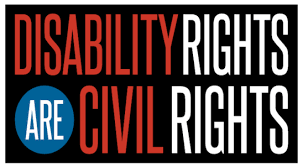Freedom of Choice

David Axelrod is best known for being an outspoken advisor and campaign strategist to President Barack Obama. He is also the father of a 40-year-old daughter with severe disabilities. Last month, The New York Times featured his breathtaking essay about the challenges families face as our daughters, sons and siblings grow into adulthood and leave home to create homes of their own. I could not be more grateful for his eloquence, and for the spotlight he now shines on this important civil rights issue.

Mr. Axelrod speaks to the heart of what my family and thousands of others across the country have encountered when our loved ones chose to live in settings that the government and often well-intentioned disability advocates believe are not inclusive enough.
Rather than ensuring a full range of high-quality residential options for people with disabilities to fit their individual needs and circumstances, the prevailing view of many policymakers is to compel a one-size-fits-all answer.
Hundreds of families have weighed in in on Mr. Axelrod’s op-ed. Like me, and perhaps you, most agree the one-size-fits-all approach doesn’t provide the breadth of high quality options, dignity of choice and ultimate happiness people with disabilities deserve.
Many older adults choose to live in communities of older people. No one says they must stay in the communities they lived in that they no longer feel work for them. Why not give people with disabilities and their families choices as well?
Some people with disabilities thrive in a house on a cul-de-sac. Others, in an apartment on a busy street. Many, like our son, find fulfillment and independence in larger, intentional communities. Still others, on farmsteads. I’ve profiled many of these options in this newsletter, and I continue to marvel at the creativity and commitment and care they represent to the individuals they serve. Based on the success men and women with disabilities are experiencing in these settings across the U.S., I encourage and support an individual’s right to choose where they want to live — determined not only by their disabilities, but also by their hopes, dreams, needs and desires. I believe this is the true meaning of “disability rights.”
The role of government is not to dictate how a person with developmental disabilities should live in order to receive essential government supports. Instead, government and disability advocacy groups need to honor, support and help monitor quality housing options. This would allow individuals and their families to choose the option they prefer while also helping service providers succeed and thrive.
I’ve met with U.S. Senators and Congressmen to explain this broken and inefficient system, providing emotional details about how it impacts the adult son I adore and many other individuals whom I have grown to know and love throughout my journey as a parent and disability advocate.
I’ve created videos, PowerPoint presentations and hundreds of emails outlining how and why the lack of housing choice for families and individuals with disabilities is both unjust and impractical.
I’ve spent many sleepless nights filled with worry, exhaustion and frustration — often feeling like no one cares or is willing to listen and learn. Especially the people most “in charge.”
But I’m never going to give up. And I hope you won’t either.
Please take a moment to read Mr. Axelrod’s opinion piece, if you haven’t done so already. Share your thoughts below, and share his essay with others.
If your state blames the HCBS settings rule in order to impose a cap on the number of individuals receiving services in a setting, I encourage you to contact Together for Choice for help.
The belief that every intellectually disabled individual should live in a certain type of living arrangement is poorly conceived and out of date. One size does not fit all. Never did. Never will.
The time for change is now
Interested in learning more about working with Kris?
Contact us for information on what this might look like for you, including outcomes, availability, fees and more.
Stay connected with news and updates!
Sign up below to receive our newsletter and updates.
We hate SPAM. We will never sell your information, for any reason.


